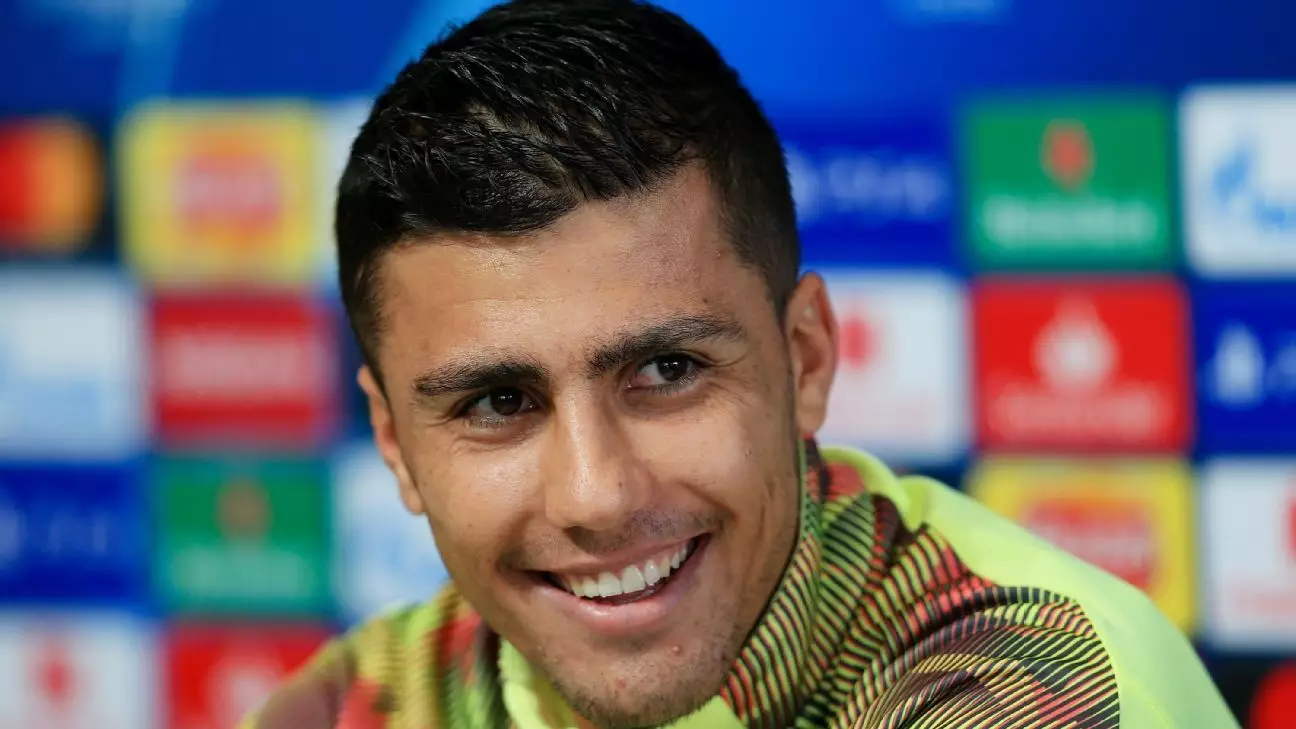In recent weeks, the increasing concerns over fixture congestion in professional football have reached a critical boiling point. The Professional Footballers Association (PFA) has made it clear that it is pursuing legal action against FIFA, underscoring a collective sense of urgency within the football community. This growing unease is echoed by players like Manchester City’s Rodri, who voiced alarming sentiments about the possibility of strikes as a genuine means to galvanize attention for their plight. The potential ramifications of this intense player backlash could forever alter the landscape of professional football, urging administrators to rethink established scheduling norms.
Rodri’s predicament is not an isolated case; he played a grueling 63 matches last season for both club and country, with the prospect of an even busier calendar looming due to an expanded Champions League and an overhauled Club World Cup. The sheer volume of games remaining in the current season could see top-tier players competing in up to 85 matches. Such staggering statistics raise legitimate concerns regarding player health, performance levels, and overall well-being.
PFA President Maheta Molango has emphasized the urgency of the issue, stating that the consequences of excess workload are no longer a distant concern but a present reality. The league’s calendar—already tightly packed—faces even more strain, and players are increasingly vocal about their frustrations. It is clear that the traditional paradigms surrounding player commitments are under substantial scrutiny.
Reactions from various stakeholders display a growing consensus that dramatic reform is necessary. Notably, Real Madrid’s Carlo Ancelotti has vocalized apprehension over the relentless schedule, highlighting that excessive game time correlates with higher injury rates among players. The sentiment shared by many players—like Manchester City’s Erling Haaland—reiterates that fatigue can diminish performance quality. A season rife with international competitions and various club commitments compounds the players’ dilemma, fostering an environment where exhaustion can severely hinder peak performance.
LaLiga president Javier Tebas, who has stepped into the fray, proclaims that it is high time to put an end to unsustainable practices within the game. His assertive stance underscores a belief that the adjustment of schedules, particularly with the introduction of additional Champions League fixtures, could lead to an untenable situation for both players and the industry at large. This is not just about the individual athlete’s health; it encompasses the integrity of competitions and the relationships within the entire football ecosystem.
In response to mounting pressures, players are beginning to investigate the feasibility of strikes as a last resort. The Spanish Players’ Union (AFE) President David Aganzo stands firmly in support of Rodri while acknowledging the dire situation they face if negotiations fail. The continued push for dialogue with governing bodies has yielded little assurance, leading to a pervasive sense of despair among players. With this in mind, the football community must ask: what steps can be taken to rebalance the scales?
Critically, the conversation around fixture congestion pits player welfare against commercial interests. Media rights and sponsorship deals provide substantial revenue for leagues and organizations, but at what cost? While these financial lifelines sustain the sport, they also create a paradox where player safety is jeopardized in the name of profit. The challenge lies in finding a sustainable balance that prioritizes both the financial health of the sport and the physical well-being of its players.
As the landscape of football evolves, it becomes imperative that all stakeholders—players, clubs, associations, and governing bodies—engage in meaningful dialogue. The sentiments expressed by influential figures like Rodri, Ancelotti, and Tebas hint at an actionable path forward, where the focus shifts toward creating a viable schedule that accommodates player health without undermining the excitement of competition.
To initiate meaningful reform, the governing bodies must be willing to embrace the necessary changes, recognizing that the long-term health of the sport relies on the well-being of its players. Continuing to ignore their concerns not only risks their health but can also jeopardize the future appeal of football itself. Ultimately, it is a collective responsibility to adapt, innovate, and safeguard the sport we hold dear, ensuring that its integrity remains vibrant for generations to come.

Leave a Reply